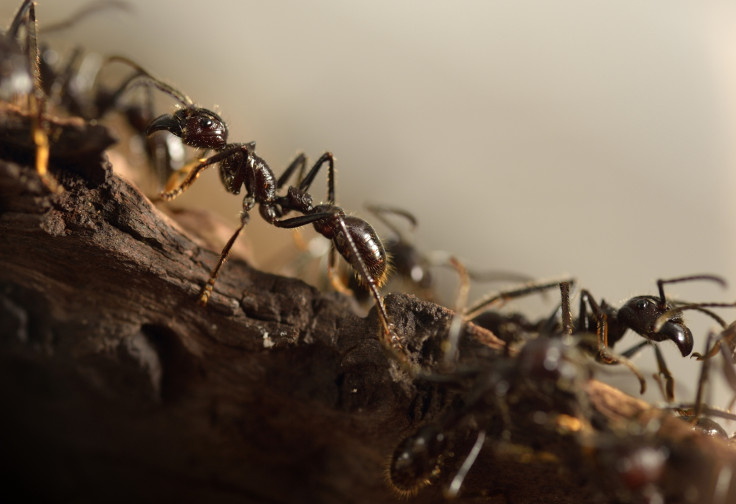Flying Ant Day: Which day should Britain beware as giant insect invasion looms?
Thousands of giant ants will take flight to mate in different locations around the UK on the same day.

Swarms of giant flying ants are set to invade Britain in an annual day known as Flying Ant Day. The ant invasion usually occurs once a year in July or August, when warm weather is followed by humid weather.
On this day, huge numbers of flying ants fill the air on exactly the same day in different locations across the UK. However, no one knows exactly when Flying Ant Day will take place, proving to be a surprise every year.
The phenomenon is how most ant colonies are formed across the UK, with young queen ants taking flight to leave the nest and found their own colony.
Each queen ant eventually makes their own nest that will host between 5,000 and 15,000 black garden ants, also known as "workers", which are the type of ants seen most commonly throughout the rest of the year. Ants mate during the flight, which means that both male and female ants have wings, with the larger ones easily identified as the female queens.
A spokesperson for the Royal Society of Biology said: "The large numbers of flying ants which appear in a short space of time increase the chance of reproduction: there is a very high chance a queen will encounter a male from another nest. Once the males and immature queens have mated, the queens then try to start a new nest."
According to the Telegraph, pest control companies have seen a sharp rise in calls for ant infestations in homes, with numerous sightings of flying ants. These flying ants can grow up to three times the size of a normal ant.
Professor Adam Hart, a biology expert at the University of Gloucestershire, told the Telegraph: "With 2016 already proving to be a wet one, it will be interesting to see whether we get a repeat of 2012, when most of the flights were compressed into just a couple of days in July and August between the rain."
The queens will lose their wings and after Flying Ant Day, many can expect to see large ants walking around on their own. These are said to be the new queens looking for somewhere to build their nest and set up their new colony.
While queens can live for more than 10 years and spend most of their lives in their nest, male ants live for only one day after the mating flight. They are only produced during the flying ant season and their only job is to mate with a new queen.
The forecast for the rest of the week in London is expected to be a mix of warm temperatures and some rainfall, bringing the possibility of humid conditions, which are ideal for Flying Ant Day.
© Copyright IBTimes 2025. All rights reserved.



















